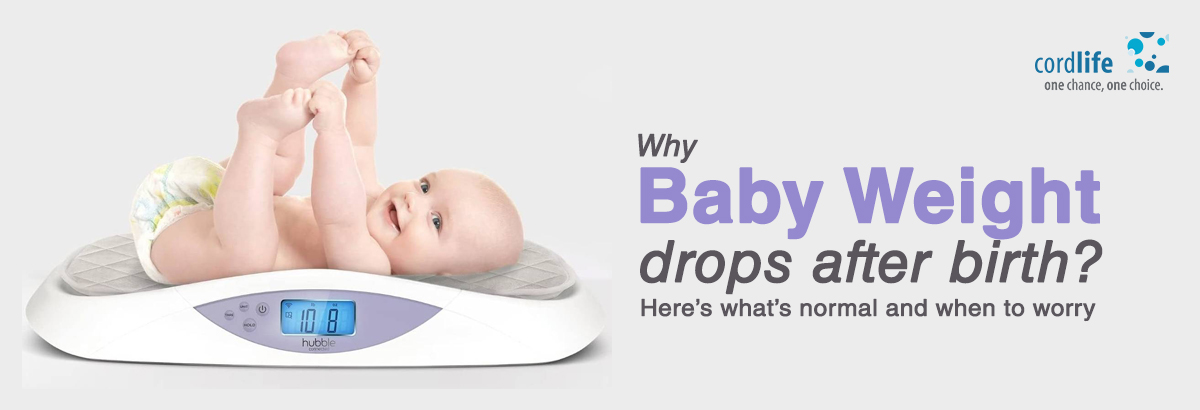Table of Contents
A new baby brings immense joy. But new parents often worry about their baby’s weight in the early days. Why do newborns lose weight after birth? This is a common concern among new parents. Understanding normal weight loss patterns helps ease anxiety in parents. This blog explores what typical newborn weight loss looks like, when to worry, and the factors that influence a baby’s weight in the early days.
Typical Newborn Weight Loss
Newborns usually lose a little weight in the initial days of life. This happens in the first few days after delivery. Infants typically lose 5-10% of their birth weight during the first week after arrival. This weight loss is due to a variety of factors, including dietary adjustments and dehydration. The baby also transitions to an unfamiliar setting outside the womb. Infants can safely lose up to 10% of their body weight without concern. Neonatal weight loss guidelines confirm this phenomenon.
Why Newborns Lose Weight after Birth
Newborns lose weight for various reasons after delivery in the immediate postpartum period. During pregnancy, babies retain excess fluid, which is naturally shed after birth through bowel and urine movements. Newborns may also lose weight if feeding is infrequent for extended periods. Ineffective feeding also contributes to weight loss. What causes the baby to lose weight after birth often relates to these factors.
Breastfeeding and infant weight are closely linked. Newborns take time to develop good latching techniques for feeding. Poor latch or low milk supply can result in insufficient milk intake. Formula feeding and infant weight also impact weight in different ways. Some babies may take time to adapt to formula milk, which can affect digestion and weight gain.
Certain conditions impact feeding and weight gain in infants. Examples include infections or jaundice in the newborn.
How Much Weight Loss is Normal?
Weight loss of up to 10% of birth weight is usually fine and within normal limits. It is vital to monitor your baby’s weight regularly during the first week. Parents can ensure weight loss stays in range with careful observation. If a child loses over 10%, see a paediatrician for immediate guidance.
When to Worry About Infant Weight Loss
Some weight loss is normal. But certain situations need extra caution from parents and caregivers. A newborn losing weight after the first week is a concern for their health. A baby not gaining weight after birth is also concerning for developmental progress. Other signs to watch for include:
Lethargy and Decreased Responsiveness: Your child may be unusually tired for their age. They may respond less than usual to stimuli. Dehydration or other conditions require monitoring by a medical professional.
Inadequate Feeding: Insufficient weight gain may result from inadequate feeding in the early days for both breastfed and formula-fed babies.
Dehydration Signs: Watch for sunken eyes, dry lips and fewer wet diapers than expected.
When to Consult a Doctor
Consult a doctor if your child isn’t gaining weight as expected. Also, see a doctor if they lose over 10% of birth weight beyond the normal range. A paediatrician offers pediatric advice on baby weight to concerned parents. They support your baby’s growth with professional expertise. Regular visits are important for continued monitoring. Monitor your baby’s weight closely with a home scale or at clinic visits. This ensures their health and robustness as they grow.
Infant Weight Gain Goals
Monitor your child’s weight gain stages to track their development. This gives a clear picture of their development over time. Most babies regain birth weight by two weeks old after a normal initial loss. Infants typically gain 5-7 ounces weekly during the first few months of their lives. This happens during the first few months of infancy. Many babies double their birth weight by six months of age. Monitoring your baby’s weight on a postnatal baby growth chart is helpful for visual tracking. It ensures they meet baby weight gain milestones for healthy development. It also facilitates progress tracking with a clear visual representation.
Breastfeeding and Infant Weight
Breastfeeding is crucial for a baby’s weight gain and overall development, as breast milk is packed with vital nutrients and antibodies. Ensure frequent feeding at regular intervals. Proper latching is also important for effective milk transfer. Consult a lactation specialist if concerns arise regarding breastfeeding. Formula Feeding and Infant Weight
Parents who choose formula must follow preparation and feeding guidelines carefully. Ensure your child receives the appropriate formula for their specific needs. This depends on their weight and age at the time of feeding. Your paediatrician offers tailored guidance for formula selection and use. Consult them if you are concerned about formula feeding and infant weight gain or loss.
Conclusion
Infants typically lose weight shortly after birth as a natural process. A 10% drop is usually harmless under normal circumstances. Parents should monitor their baby’s weight and feeding patterns diligently. Do this throughout the first week of the baby’s life. Consult a physician if your child shows signs of distress or concern. These include dehydration or severe fatigue in the infant. Also, seek help for insufficient weight gain..
Understanding the reasons for baby weight loss after delivery is key for parental peace of mind. Remember, each baby is unique, and their growth patterns may vary. Early intervention significantly improves a child’s overall development for a brighter future.
